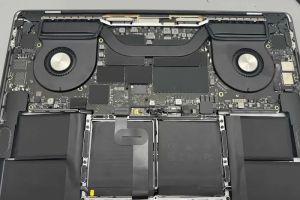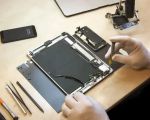Does Repairing Your Computer Delete Files? Everything You Need to Know
If you've ever faced a technical issue with your computer and thought about sending it in for repairs, you’ve probably asked yourself: "Will repairing my computer delete files?" It’s a legitimate concern. After all, our computers are home to valuable personal files, work documents, photos, and even memories we can’t afford to lose. While computer repair services are usually designed to fix hardware or software issues, there is a possibility that certain repairs could result in data loss. Let’s dive into the facts surrounding computer repairs and file deletion, and discuss ways to protect your data during the process.

Action Computers Inc. -- Denver Location
2890 S Colorado Blvd F, Denver, CO 80222, USA
1. What Happens During a Computer Repair?
When you take your computer to a repair shop or contact a freelance technician, they typically perform one of several common types of repairs. These could include:
- Hardware Repairs: Replacing a damaged component such as a hard drive, motherboard, or screen.
- Software Troubleshooting: Resolving issues with your operating system, programs, or software conflicts.
- Virus or Malware Removal: Removing harmful software that could be affecting your computer’s performance.
- System Upgrades: Installing new hardware or software to enhance your computer's performance.
Generally, hardware repairs, such as replacing the hard drive or upgrading the memory, may affect your data if the technician needs to work on the storage drive. In contrast, software troubleshooting or virus removal typically doesn't involve file deletion unless the operating system needs to be reinstalled. However, some repairs, such as a system refresh or a complete reinstall of Windows, could wipe out your data.

Fix It Computer Repair
2638 Geranium Ln, Fort Collins, CO 80525, USA
2. Can Repairing Your Computer Lead to Data Loss?
The possibility of data loss during computer repairs largely depends on the nature of the repair. Here are some scenarios where your files might be at risk:
- Hard Drive Replacement: If your hard drive is damaged and needs to be replaced, the technician will likely install a new drive. Unless your data is backed up or transferred to a new drive, it could be lost permanently.
- Operating System Reinstallation: In some cases, technicians may need to reinstall the operating system to fix software issues or remove malware. This process often involves wiping the existing system and starting fresh, which could erase personal files stored on the computer.
- Factory Reset: A factory reset restores the computer to its original settings, removing all user data in the process. This is usually done when troubleshooting severe issues, but it will delete your files unless they’re backed up.
In short, not all repairs will delete your files, but certain repairs—especially those involving a new hard drive or system reinstall—can put your data at risk.
3. How to Protect Your Files Before a Repair
The best way to avoid the risk of data loss is to take steps to back up your files before sending your computer in for repair. Here are some effective methods to protect your data:
- Cloud Storage: Use cloud storage services like Google Drive, Dropbox, or OneDrive to store important files. Cloud storage allows you to access your files from any device and provides an automatic backup in case of data loss.
- External Hard Drives: Invest in an external hard drive to back up your files. It’s a simple and effective way to ensure your data is safe, even if your computer is being repaired.
- USB Flash Drives: For smaller backups, consider using a USB flash drive. These are convenient and portable, and you can easily store key files before sending your computer for repair.
By taking these precautions, you can ensure that your personal data stays safe and accessible, even during the repair process.
4. What If My Files Are Lost During the Repair?
Despite taking precautions, there's always a chance that data could be lost during repairs. If this happens, don't panic! There are ways to recover lost files:
- Data Recovery Software: If your files were accidentally deleted but the hard drive is still intact, data recovery software may be able to help you retrieve them. Programs like Recuva or EaseUS Data Recovery are popular choices for recovering lost files.
- Professional Data Recovery Services: In more severe cases, professional data recovery services can assist in recovering files from damaged or corrupted drives. These services can be costly but are often your best bet for retrieving important files from a broken or failed hard drive.
While it’s not always guaranteed that you’ll be able to recover lost data, these recovery methods can be lifesavers if something goes wrong during the repair process.
5. Is It Safe to Have My Computer Repaired?
When you entrust your computer to a repair technician, it’s natural to worry about your data security. However, reputable repair services take precautions to safeguard your personal files. Always choose a professional and trustworthy service, and look for these signs to ensure you're working with a reputable technician:
- Positive Reviews: Look for reviews and testimonials from other customers who have had similar services performed.
- Clear Service Terms: A reliable service provider will have clear terms and agreements in place, ensuring transparency about the repair process and any potential risks.
- Data Privacy Policies: Trustworthy repair shops take steps to protect your data, offering non-disclosure agreements (NDAs) or policies to ensure your files are not accessed without your consent.
Choosing a trusted service provider minimizes the risk of data loss and ensures your computer is repaired efficiently and securely.
Conclusion
In conclusion, while not all computer repairs lead to file deletion, certain repairs, like a hard drive replacement or a system reinstallation, could put your data at risk. To avoid losing your important files, make sure to back up your data before sending your computer for repair. If you’re concerned about potential data loss, consider using cloud storage or an external drive to protect your files. If you do experience data loss, recovery software or professional data recovery services may help retrieve your lost information.
If you're looking for expert computer repair services and want to ensure your files are kept safe, check out Computer Repair for trustworthy services and peace of mind.




























